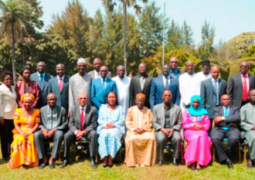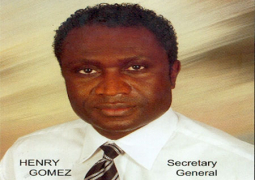
It has been made clear by public and private sector authorities that the control of price hikes in The Gambia is unattainable if certain fundamentals are not achieved by the country, as it is a game of market forces and not the players of the economy.
These fundamentals, they say, include the exchange rate of foreign currencies, substantial investment and productivity, as well as vast exportation that can square up, cover or even surpass the country’s import bill.
As long as these and their relatives are not put aright, consumers will continue to face the shockwaves of price hikes in the country, as being experienced by many low-income countries in Africa and elsewhere.
These deliberations took place at a press conference held yesterday by the Gambia Chamber of Commerce and Industry (GCCI) at its Secretariat, Kerr Jula, on Bertil Harding Highway in Bijilo to brief the press about GCCI business activities and the Ramadan.
The main reasons for price increase in The Gambia, members of the private sector argue, border on huge import bill which gravely affects the value of the Gambian dalasi as it continues to chase foreign currencies to meet import bill.
While more Gambian dalasi continue to be exchanged for relatively the same value of foreign currencies, importers continue to pay more for goods imported into The Gambia, which leads to price hikes.
Another problem, they say, is transport cost, through road, flight and sea routes, which poses great problems for merchants and importers as it increases their costs of importing into the country.
The problems of energy and taxation came up as other significant factors to causing the incessant increases in prices of goods and services in the country.
While huge electricity bill is swelling the cost of production and managing a business in the country, for instance, taxation such as the Value Added Tax (VAT), is squeezing the profit margin of business operators.
The VAT has not in actual fact exactly replaced the sales tax of 15% as stated by the Gambia Revenue Authority, some of the business operators at the press briefing argue.
This is so because whilst the sales tax was being charged only on cost of goods imported, the VAT of 15% is now charged on the overall selling price of goods, which gives a different result altogether in terms of real figure.
GCCI Chief Executive Officer Almami Taal said the chamber, together with the GRA, the Ministry of Trade and the IMF, has been trying to sensitize both business operators and the general public on the issue of VAT.
Mr Taal said the VAT has been implemented in The Gambia as a viable tax mechanism and in compliance with ECOWAS protocols. “We will continue to engage the private sector and the general public on this issue,” he added.
According to GCCI vice president Papa Yusupha Njie, they as board members of the GCCI have been talking with government on fundamental issues of the Gambian economy such as tax, energy and the stock exchange market, which goes a long way in making the national economy liquid and beefing up the financial system in the country as it spurs investment and wealth.
GCCI President Muhammed Jagana, in his comments on price control, said the nation has to look into how to attract more investment, produce more for export to earn the foreign currency needed to meet import bill as well as job and wealth creation.
“We have to produce and export to meet our import bill,” he said, adding that this is the viable mechanism for price control.
Trade Ministry permanent secretary Naffie Barry subscribed to Mr Jagana’s remarks, saying: “We as a government encourage investment to raise income for the people, to create jobs and meet the foreign exchange challenge.
Ousainou Dambell of DBC Printing Enterprise, other board members of GCCI, and other business operators also pointed out the challenges of investment in The Gambia.
Read Other Articles In Article (Archive)



